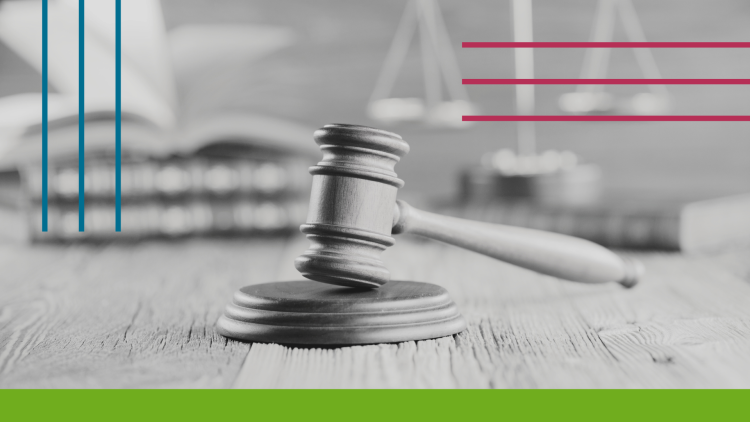
The parliamentary elections held on October 26 in Georgia have plunged the country into political uncertainty, marked by protests, allegations of electoral fraud with civil society organisations (CSOs) playing a pivotal role in defending democratic principles and ensuring electoral integrity.
Georgia conducted its parliamentary elections under a fully proportional voting system with a 5% threshold for party representation. For the first time, 90% of polling stations utilised electronic voting. By the evening, preliminary results suggested a clear victory for the ruling Georgian Dream party, which secured 53.93% of the vote, guaranteeing a parliamentary majority. However, opposition parties immediately alleged electoral violations, including voter intimidation, vote-buying, and result manipulation.
Civil society organisations played a critical role before, during, and after the elections. The “My Voice” coalition of CSOs monitored polling stations across the country and abroad, seeking to ensure compliance with electoral standards. Post-election, CSOs were vocal in their criticism of the conduct of the vote. GYLA emerged as a central figure, challenging the results and documenting alleged violations. They reported that Georgia’s Central Election Commission (CEC) failed to ensure the secrecy of the ballot in the 2024 parliamentary elections. The ruling Georgian Dream party installed cameras in polling stations, some of which captured views of sensitive areas such as registration desks, verification machines, voting booths, and the main ballot box, compromising voter privacy. In addition, the ballots were thin enough that you could see a colored circle on the back indicating who someone voted for. A district court in the southern Georgian municipality of Tetritskaro ruled in favor of a claim by GYLA on violations of vote secrecy; however, the ruling was later disputed in the appellate court.
On November 19, 2024, President Zurabishvili as well as 34 current members of the Georgian Parliament filed a lawsuit with the Constitutional Court. Due to violations of the principles of universality and secrecy of the elections, the President of Georgia and the deputies demand that the disputed regulatory norms of the elections and the final results of the elections conducted based on them be declared unconstitutional.
Significant concerns from international community
The EU has called for a thorough investigation into reported electoral violations, emphasizing the importance of upholding democratic standards. EU officials have expressed apprehension that the alleged irregularities could impede Georgia's aspirations for EU membership.
Secretary of State Antony Blinken has urged Georgian authorities to address the reported electoral violations transparently and to ensure accountability. The U.S. has also highlighted concerns over potential Russian interference in the electoral process.
The OSCE's Office for Democratic Institutions and Human Rights ODIHR observed that the elections were marred by entrenched polarization and concerns over recently adopted legislation affecting fundamental freedoms and civil society. The organization noted that while voters were offered a choice between 18 candidate lists, the overall environment was not conducive to a fully democratic process.
The Council of Europe has expressed concern over the uneven playing field, pressure, and tension observed during the elections. It emphasized the need for Georgian authorities to address these issues to maintain democratic integrity.
The European Parliament also calls for new elections in Georgia. Due to significant irregularities, MEPs reject the outcome of the recent parliamentary elections in Georgia and call for them to be re-run within a year.
Well-documented irregularities cast doubt on election's legitimacy
The International Society for Fair Elections and Democracy (ISFED) has also raised serious concerns about the integrity of Georgia’s October 26 parliamentary elections, citing widespread irregularities that undermine the credibility of the process.
According to ISFED’s findings:
- Voter tracking by political coordinators was observed at 31% of polling stations, with organised transportation of voters at 19%, indicating coordinated attempts to control turnout and influence votes in favor of the ruling party.
- Incidents of voter coercion and intimidation, including physical and verbal confrontations, were documented at 11% of polling stations, potentially suppressing opposition supporters’ turnout.
- Additionally, vote-buying was reported at 13% of polling locations, alongside cases of ballot stuffing and multiple voting, further compromising the election’s integrity.
- Observers faced restrictions or expulsions at 30 polling stations, reflecting a lack of transparency, while violations of inking procedures occurred at 9% of locations.
- Alarmingly, ISFED identified unnatural voter turnout patterns, with male voter turnout exceeding 100% at some polling stations, suggesting potential data manipulation.
- The organisation lodged 294 complaints, underscoring the systemic nature of these irregularities.
While ISFED’s Parallel Vote Tabulation results aligned with the Central Election Commission’s official figures, the organisation concluded that pre-election coercion, election-day manipulations, and restricted observer access rendered the election unreflective of the public’s true will.
Court decision expected in 30 days
The Constitutional Court is currently reviewing the President's lawsuit, with a decision expected within 30 days of filing. The ruling Georgian Dream party convened the new Parliament on November 25, 2024, despite ongoing legal challenges and widespread public protests. Legal experts have argued that parliamentary mandates should not be recognised until the Court issues its ruling, potentially delaying legislative proceedings. However, the government proceeded with the inauguration, intensifying political tensions and raising further concerns about democratic backsliding in the country.
The forthcoming decisions by the Constitutional Court will significantly influence Georgia's political trajectory and the integrity of its democratic institutions.
